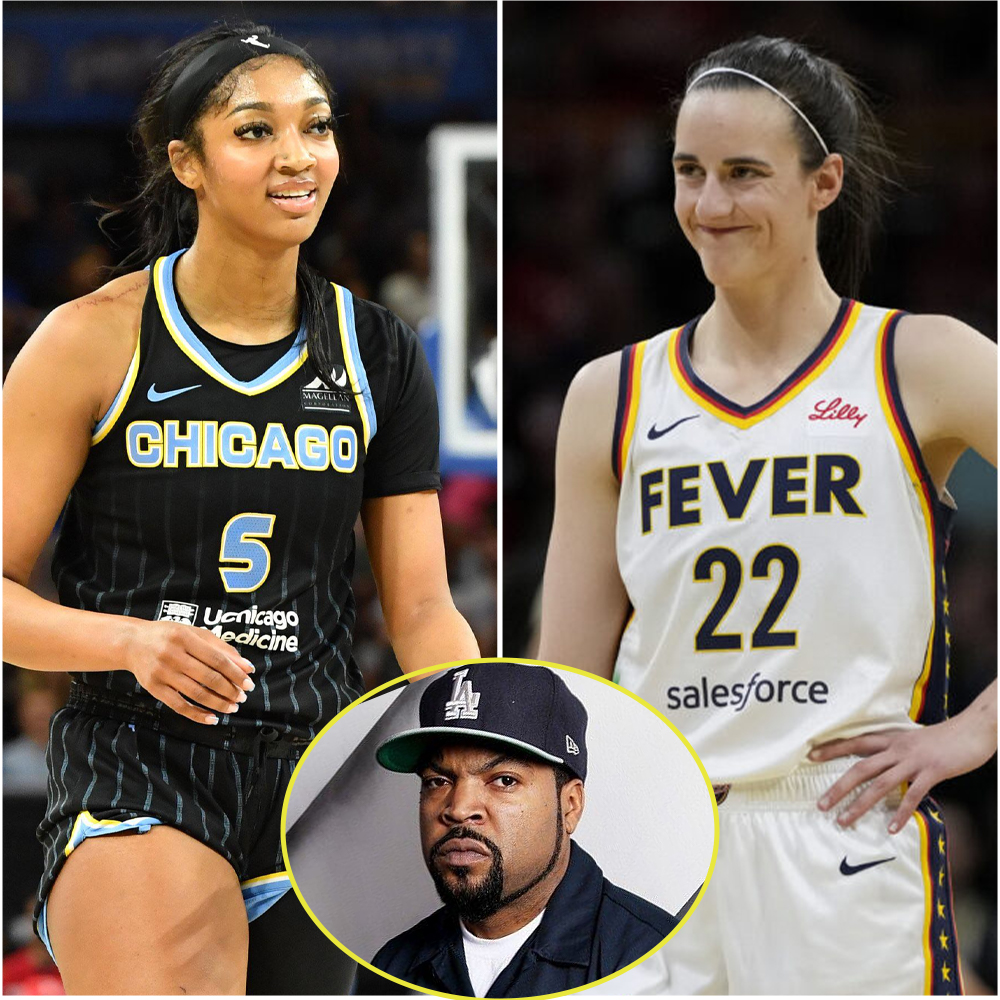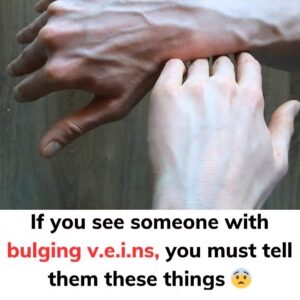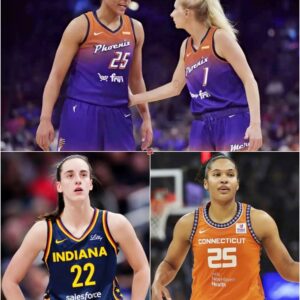
Angel Reese vs. Caitlin Clark: Why Ice Cube’s $5M Offer Went to One and Not the Other
In the explosive rise of women’s basketball, two names dominate headlines: Angel Reese and Caitlin Clark. Their rivalry—on and off the court—has catapulted the WNBA into the national spotlight, drawing record-breaking viewership and millions of new fans. But behind the hype lies a deeper story about value, branding, and business—one that took a sharp turn when rapper and Big3 founder Ice Cube made a bold move.
$5 Million for Clark—but Nothing for Reese?
Ice Cube recently made waves by offering Caitlin Clark a jaw-dropping $5 million contract to join his Big3 basketball league. The deal reportedly included not just a salary, but ownership stakes and merch profits. It was a calculated play to bring star power—and a flood of attention—to his growing 3-on-3 league.
But when asked whether he’d extend the same offer to Angel Reese, Cube didn’t hesitate: “Absolutely not.”
His explanation was cold, calculated, and 100% rooted in business:
“Sponsors were ready to unlock millions for Caitlin. That wasn’t the case with Angel.”
Clark: The Consistent Star
Clark’s appeal to brands lies in her clean image and record-breaking performance. With the NCAA scoring title under her belt and a calm, focused demeanor, she’s viewed as a “blue-chip investment”—reliable, elite, and controversy-free. Companies see her as a long-term asset with huge returns.
Reese: The Firebrand with Polarizing Appeal
Angel Reese, known as the “Bayou Barbie,” brings a different kind of energy. Charismatic, bold, and unapologetically confident, she’s built her brand around swagger and drama. While she commands a massive fanbase, her image is seen by some sponsors as high-risk—more viral moment than long-term marketability.
Cube’s decision wasn’t personal—it was strategic. His league doesn’t have NBA backing. Every dollar must count.
“We run a business, not a social mission,” he said. His team went with the star sponsors believed would deliver the biggest return.
Fan Backlash and the Harsh Business of Branding
Reese’s fans didn’t take the snub lightly. Accusations of bias and betrayal lit up social media. But the numbers tell a different story. Clark’s games drive ticket sales, jersey buys, and massive media engagement. Reese’s public persona, while electric, sometimes overshadows her game—and sponsors are watching closely.
The so-called Reese vs. Clark rivalry has often played out louder in headlines and comment sections than in actual stat lines. Clark’s consistent excellence has translated into team success and personal milestones. Reese’s impact, while undeniable, is often drowned in off-court noise.
Marketing vs. Momentum: A Tale of Two Stars
This isn’t about who’s better—it’s about who sells. Clark is building a legacy of greatness; Reese is building a brand of boldness. Both are valuable—but only one is currently seen as a surefire investment.
In sports, it’s not just about being seen—it’s about what people see when they look at you. Caitlin Clark is seen as the future face of the league. Angel Reese, while a powerhouse, is often cast as the disruptor.
Final Takeaway: Fame Is Fast, Legacy Lasts
Ice Cube’s decision highlights an age-old truth in professional sports:
Attention is fleeting. Marketability pays the bills.
Reese had the spotlight—but Clark’s been stacking wins, breaking records, and earning the trust of fans and brands alike. In the end, the scoreboard—and the sponsorships—tell the story.





